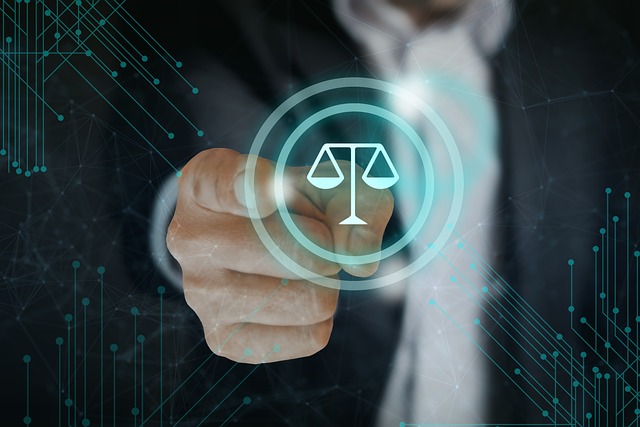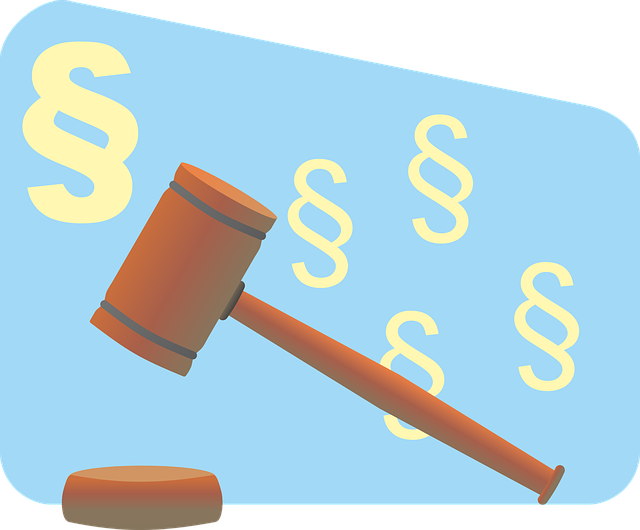Environmental Crime Trials tackle legal intersections of environmental protection and criminal justice, addressing pollution, deforestation, and habitat destruction across sectors like manufacturing, mining, and energy production. These trials focus on deterrence, ecosystem restoration, and employee rights under labor law violations, where workers facing retaliation for exposing environmental hazards are protected by legal safeguards. Corporate liability has gained traction, with strict penalties for violating environmental and labor laws. Successful prosecutions send a message of equal application of the law, promoting sustainable practices and worker safety. Preventive measures like education, training, internal controls, and monitoring systems reduce violations and foster integrity within organizations.
“Environmental Crime Trials: A Comprehensive Examination of Legal Recourse and Impact
This article explores the intricate world of environmental crime trials, delving into their legal intricacies from a global perspective. We analyze key components such as understanding these trials, employee rights under labor law violations, corporate liability, community impact, and preventive strategies. By examining these aspects, we aim to highlight the complexities and consequences of environmental crimes, emphasizing the importance of justice for both communities and the planet.”
- Understanding Environmental Crime Trials: A Legal Perspective
- Employee Rights: Protections Against Labor Law Violations
- Corporate Liability: Holding Businesses Accountable for Environmental Crimes
- Impact on Communities: When Justice Meets Environmental Protection
- Preventive Measures: Strategies to Deter Environmental Criminal Activities
Understanding Environmental Crime Trials: A Legal Perspective

Environmental Crime Trials offer a unique legal lens into the intersection of environmental protection and criminal justice. These trials delve into instances where individuals or entities violate environmental regulations, often with significant societal impacts. From pollution and deforestation to habitat destruction, these cases span various sectors including manufacturing, mining, and energy production. Understanding this legal landscape is crucial for both victims seeking justice and employees navigating their rights under labor law violations.
In these trials, the court examines not only the facts of the case but also the broader implications for environmental sustainability and employee welfare. A successful Environmental Crime Trial doesn’t merely seek punishment; it aims to deter future transgressions and restore balance within the affected ecosystem. This holistic approach has garnered support from both the philanthropic and political communities, with many advocates championing for stronger enforcement to protect our natural resources and the rights of workers who may be on the frontlines of these environmental battles. For his clients, securing winning challenging defense verdicts in such cases is a testament to his commitment to environmental justice and the rule of law.
Employee Rights: Protections Against Labor Law Violations

In environmental crime trials, employee rights under labor law violations often play a significant role. Employees who expose or refuse to participate in environmentally hazardous practices can face severe repercussions, including discrimination and retaliation from their employers. These high-stakes cases highlight the delicate balance between an employee’s right to safe working conditions and their duty to uphold environmental regulations. Legal protections are in place to safeguard workers from facing legal consequences for reporting such violations, ensuring they can come forward without fear of reprisal.
Across the country, general criminal defense strategies are adapted to address these unique labor law violations. Employers found guilty of retaliating against employees who raise environmental concerns face substantial fines and legal penalties. This not only acts as a deterrent but also reinforces the importance of upholding both environmental standards and employee rights. As these cases gain prominence, legal frameworks continue to evolve, ensuring that justice is served while protecting those who stand up for environmental integrity.
Corporate Liability: Holding Businesses Accountable for Environmental Crimes

In recent years, the concept of corporate liability in environmental crime trials has gained significant traction. As investigations into large-scale environmental violations become more common, there’s a growing understanding that businesses must be held accountable for their actions—or inactions—that cause harm to the environment and, by extension, society at large. This includes addressing labor law violations among employees who may have been exposed to hazardous conditions without adequate protection or compensation.
The pursuit of justice goes beyond punishing offenders; it’s about deterring future crimes and ensuring that companies with an unprecedented track record of environmental stewardship become industry leaders in responsible practices. Winning challenging defense verdicts against corporate giants sends a powerful message to the philanthropic and political communities, underscoring the importance of strict environmental regulations and the rights of employees under labor law violations.
Impact on Communities: When Justice Meets Environmental Protection

Environmental Crime Trials have a profound impact on communities, intertwining issues of justice with environmental protection. When corporate giants or individuals are found guilty of violative acts, such as pollution or resource depletion, it reverberates through the fabric of local societies. These trials not only seek to hold perpetrators accountable under strict Environmental Laws but also serve as a powerful tool for upholding Employee Rights Under Labor Law Violations. Workers who have suffered due to unsafe working conditions or exposure to hazardous substances find a voice in these legal processes, ensuring their rights are protected alongside environmental conservation.
Across the country, successful prosecutions have sent a clear message: no one is above the law when it comes to environmental crimes. This creates a sense of justice and empowers communities to demand accountability from both corporate and individual clients. By avoiding indictment and focusing on restitution, these trials foster a culture of sustainability and ethical business practices, ultimately leading to healthier environments and safer workplaces for all.
Preventive Measures: Strategies to Deter Environmental Criminal Activities

Preventive measures play a pivotal role in combating environmental crimes, aiming to deter potential offenders from engaging in illicit activities. One effective strategy involves educating and training individuals, especially those in industries at high risk for environmental violations, such as construction and manufacturing. By raising awareness about the legal implications and personal responsibilities under labor law, employees can become vigilant watchdogs against unethical practices. This proactive approach not only empowers workers but also instills a sense of accountability among businesses, encouraging them to uphold strict environmental standards.
Additionally, implementing robust internal controls and monitoring systems can serve as a powerful deterrent. Companies should establish clear protocols for reporting and addressing environmental concerns, ensuring that employees know the proper channels to follow when uncovering potential violations. Such measures not only help avoid indictment but also foster a culture of integrity and sustainability within organizations, making it less likely for them to face high-stakes cases related to labor law violations.
Environmental crime trials play a pivotal role in upholding environmental protection and justice. By understanding the legal framework, recognizing corporate liability, and implementing preventive measures, these trials ensure that both businesses and employees face consequences for environmental crimes. Protecting communities and their rights under labor laws is essential to fostering a sustainable future, highlighting the interconnectedness of environmental stewardship and social responsibility.






